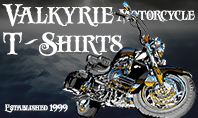Blood, Sweat & Tears (also known as "BS&T") is an American music group, originally formed in 1967 in New York City. Since its beginnings in 1967, the band has gone through numerous iterations with varying personnel and has encompassed a multitude of musical styles. What the band is most known for, from its start, is the fusing of rock, blues, pop music, horn arrangements and jazz improvisation into a hybrid that came to be known as "jazz-rock". Unlike "jazz fusion" bands, which tend toward virtuostic displays of instrumental facility and some experimentation with electric instruments, the songs of Blood, Sweat & Tears merged the stylings of rock, pop and R&B/soul music with big band, while also adding elements of small combo jazz traditions.
Al Kooper, Jim Fielder, Fred Lipsius, Randy Brecker, Jerry Weiss, Dick Halligan, Steve Katz, and Bobby Colomby formed the original incarnation of the band. The creation of the group was fueled by the "brass-rock" ideas of The Buckinghams and its producer, James William Guercio, as well as the early 1960s Roulette-era Maynard Ferguson Orchestra (according to Kooper's autobiography).
"Blood, Sweat & Tears" was the name chosen by Al Kooper, inspired by both the 1963 album with this title by Johnny Cash and after a late-night gig in which Kooper played with a bloody hand. Kooper was the group's initial bandleader, having insisted on that position based on his experiences with The Blues Project, his previous band with Steve Katz, which had been organized as an egalitarian collective. Jim Fielder was from Frank Zappa's Mothers Of Invention and had played briefly with Buffalo Springfield. But undoubtedly, Kooper's fame as a high-profile contributor to various historic sessions of Bob Dylan, Jimi Hendrix, the Rolling Stones, and so forth, was the catalyst for the prominent debut of Blood, Sweat & Tears in the musical counterculture of the mid-sixties.
Al, Bobby, Steve & Jim did a few shows as a quartet at the Cafe Au Go Go in New York City in September 1967 opening for Moby Grape . Fred Lipsius then joined the others two months later. A few more shows were played as a quintet, including one at the Fillmore East in New York. Lipsius then recruited the other three, who were New York jazz horn players he knew. The final lineup debuted late November ’67 at The Scene in NYC. The band was a hit with the audience, who liked the innovative fusion of jazz with acid rock and psychedelia. After signing to Columbia Records, the group released perhaps one of the most critically acclaimed albums of the late 1960s, Child Is Father to the Man, featuring the Harry Nilsson song, "Without Her", and perhaps Kooper's most memorable blues number, "I Love You More Than You'll Ever Know". The album cover was considered quite innovative showing the band members sitting and standing with child-sized versions of themselves. Characterized by Kooper's penchant for studio gimmickry, the album slowly picked up in sales amidst growing artistic differences between the founding members. Colomby and Katz wanted to move Kooper exclusively to keyboard and composing duties, while hiring a stronger vocalist for the group.
The music of Blood, Sweat & Tears slowly achieved commercial success alongside similarly configured ensembles such as Chicago and the Electric Flag. Kooper was forced out of the group and became a record producer for the Columbia label, but not before arranging some songs that would be on the next BS&T album. The group's trumpeters, Randy Brecker and Jerry Weiss, also left after the album was released, and were replaced by Lew Soloff and Chuck Winfield. Brecker joined Horace Silver's band with his brother Michael, and together they eventually formed their own horn-dominated musical outfits, Dreams and The Brecker Brothers. Jerry Weiss went on to start the similarly-styled group Ambergris.
Colomby and Katz then started looking for singers, considering Stephen Stills and Laura Nyro before deciding upon David Clayton-Thomas, a Canadian singer, born in Surrey, England. Reportedly, folk singer Judy Collins had seen him perform at a New York City club and was so taken and moved by his performance that she told her friends Bobby Colomby and Steve Katz about him (knowing that they were looking for a new lead singer to front the band). With her prodding, they came to see him perform and were so impressed with him that Clayton-Thomas was offered to be lead singer of a re-constituted Blood Sweat & Tears. Halligan took up the organ chores and Jerry Hyman joined on trombone. New trumpeters Lew Soloff and Chuck Winfield brought the band up to nine total members. Blood, Sweat & Tears, the group's self-titled second album, was produced by James William Guercio and released in 1969. The album was much more pop-oriented, featuring decidedly fewer compositions from within the band. The record quickly hit the top of the charts, winning Album of the Year at the Grammy Awards over The Beatles' Abbey Road, among other nominees. Blood, Sweat & Tears spawned three major hit singles: a cover of Berry Gordy and Brenda Holloway's "You've Made Me So Very Happy" (US #2), Clayton-Thomas' "Spinning Wheel" (US #2), and a version of Laura Nyro's "And When I Die" (US #2). The commercial and critical acclaim enjoyed by the band in 1969 culminated in an appearance at the Woodstock Festival, in which the band enjoyed headliner status.
Arguably, as a result of Al Kooper's departure, Blood, Sweat & Tears had difficulty maintaining its status as a counterculture icon at a time when record company executives deemed this characteristic important as a tool to lure young consumers. This was compounded by a United States Department of State-sponsored tour of Eastern Europe in 1970. Any voluntary association with the government was highly unpopular at the time and the band was ridiculed for it. In retrospect, it is now known that the State Department subtly requested the tour in exchange for more amicability on the issuance of a visa to Clayton-Thomas.
After returning to the U.S., the group released Blood, Sweat & Tears 3; which was another popular success, spawning hit singles with a cover of Carole King's "Hi-De-Ho" and another Clayton-Thomas composition, "Lucretia MacEvil". While this was a successful attempt to re-create the amalgam of styles found on the previous album, the band once again depended almost exclusively on cover material. Album reviews sometimes focused solely upon the band's willingness to work with the U.S. State Department, without bothering to discuss the actual music. Compounding the image problems of the band was a decision to play at Caesars Palace on the Las Vegas Strip, widely seen at the time as a mainstream venue for acts that did not engage in radical politics. In 1970, the band provided music for the soundtrack of the film comedy The Owl and the Pussycat , further damaging the group's underground reputation.
Following this period of controversy, the group reconvened with jazz writer Don Heckman serving as their producer and, with Dave Bargeron replacing Jerry Hyman, recorded material that would comprise their fourth album, BS&T 4. For the first time since the first album, Blood, Sweat & Tears presented a repertoire of songs composed almost entirely from within the group. Included on the album is a cover of former member Al Kooper's "Holy John (John The Baptist)". Loaded with hooks and a wide variety of moods (featuring such songs as "Go Down Gamblin'", "Lisa Listen To Me", "High on a Mountain", "Redemption"), Blood, Sweat & Tears 4 broke into the album charts, resulting in a gold record for the group. Unfortunately, none of the singles from the album managed to land in the Top 30 on any of the singles charts, and the period after the release of the fourth album began the group's commercial decline.
Blood, Sweat & Tears continues its heavy touring schedule throughout the world with its current line-up of members, some of whom have been with the band previously during the past two decades. Under the direction of Larry Dorr and founding member Bobby Colomby, the band has enjoyed something of a resurgence. Blood, Sweat & Tears donates money through its "Elsie Monica Colomby" music scholarship fund to deserving schools and students who need help in prolonging their musical education, such as the victims of Hurricane Katrina. The year 2007 witnessed the band's first world tour in a decade. Since late 2005, the band often does shows backing up former Three Dog Night singer Chuck Negron, where the group will play its own set and then another set that includes Chuck's Three Dog Night hits. 2008 brings with it the anticipated return of founding member Steve Katz. The year is also the 40th touring anniversary, and surprise alumni are expected to be joining the band throughout the year.
All of the band's albums, with the exception of Brand New Day, are currently available on compact disc. BS&T's first four albums were reissued by Sony Records in remastered editions (typically with bonus material), except for its third album, which has been reissued by Mobile Fidelity. The later Columbia albums have been reissued by Wounded Bird Records, and Rhino Records has reissued Nuclear Blues. Brand New Day was issued on CD in Russia in 2002, although the disc may not have received authorization from copyright holders.
You've Made Me So Very Happy
Lucretia MacEvil / Spinning Wheel
God Bless the Child
Hi-De-Ho / And When I Die
I love you more than you'll ever know
Ride captain ride





